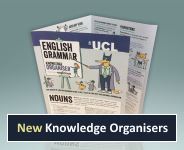Topic: Y2
Relevant for Year 2 teachers and students.
- « first
- ‹ previous
- 1
- 2
- 3
Englicious contains many resources for English language in schools, but the vast majority of them require you to register and log in first. For more information, see What is Englicious?

